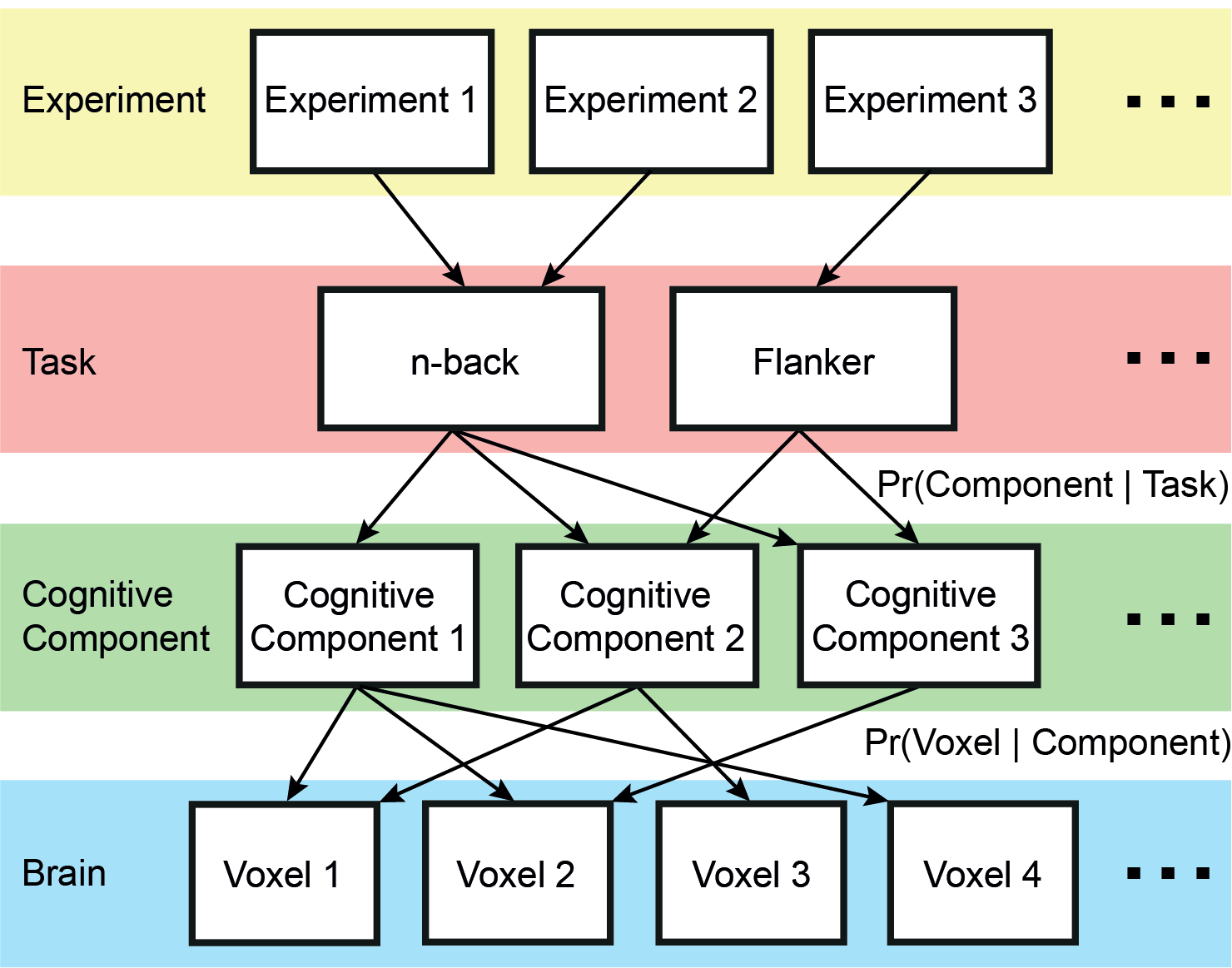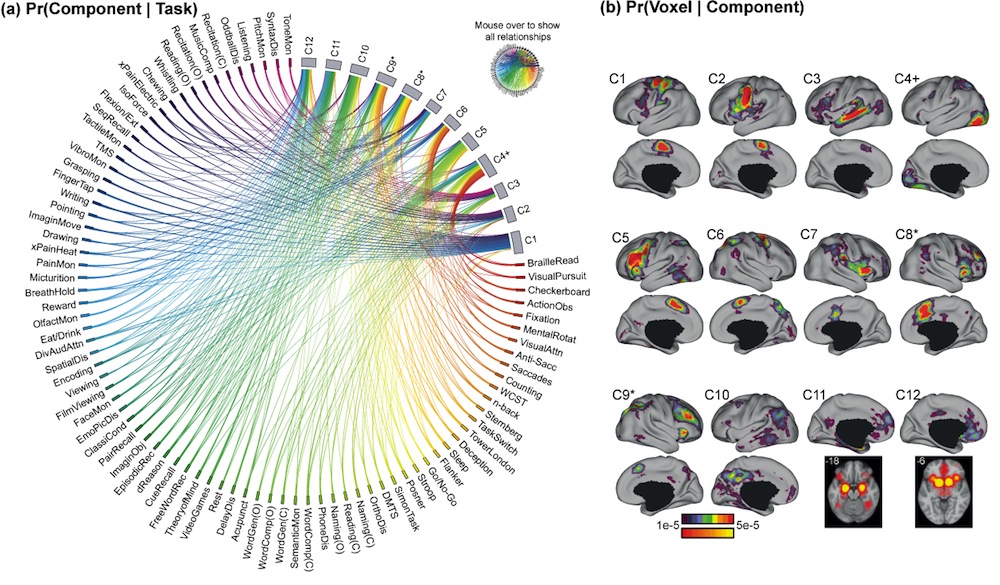Nested Cognitive Ontology Estimated From 10,449 Experiments
We applied a hierarchical Bayesian model (figure on right) on 10,449 Brainmap experiments across 83 behavioral tasks. By formalizing the notion that performing a task engages multiple cognitive components, each supported by overlapping brain regions, we identified cognitive components that are shared across tasks. Components divided into subcomponents as the number of estimated components increased, revealing a nested ontology. The components enabled the derivation of quantitative maps of functional specialization, revealing complex zones of frontal and parietal regions ranging from being highly specialized to highly flexible. The network organization of the specialized and flexible regions was explored with an independent resting-state fMRI dataset (N=1000). Cortical regions specialized for the same components were strongly coupled, suggesting that components function as partially isolated networks. Functionally flexible regions participate in multiple components to different degrees. This heterogeneous selectivity was strongly predicted by the connectivity between flexible and specialized regions. Functionally flexible regions might support the core of the brain’s information processing capacity, binding or integrating the processing power of segregated, specialized brain networks. The estimated components in FreeSurfer fsaverage space and MNI152 space, as well as specificity and flexibility estimates are available for download. |
|
References
Interactive 12-Component Cognitive Ontology
Interactive 12-component Ontology can be accessed here! We found the interactive version of the static ontology (below) extremely useful.
Interactive Component, Specialization, Flexibility Maps
Interactive Component Probability, Specialization, Flexibility Maps can be accessed on Neurovault!
Downloads
Probability task recruits components and probability component activates voxels in FreeSurfer and MNI152 space. These components will be included in some future FreeSurfer release. Note however, the zip file linked here corresponds exactly to that from the reference, while components in the developmental and official release versions of FreeSurfer are subjected to modifications/improvements.
BrainMapLexicon121102.xls: Definition of the 83 tasks (referred to as “paradigm classes” in the Brain-Map lexicon). The definition was downloaded from the BrainMap website (http://www.brainmap.org/scribe/BrainMapLex.xls) in November 2012. Note that BrainMap has since expanded the paradigm classes.
Example Usage
See README in unzipped folder.
Important Note: Because some image viewers do not handle these range of values very well, we have multiplied the values in the *PrActGivenComp* files by 1e5. Therefore in the resulting volumes, value of 1 corresponds to probability of 1e-5.
Related downloads
Resting State Cerebral Cortex Parcellations
Movies of Cortical Seed-based Resting State Functional Connectivity


